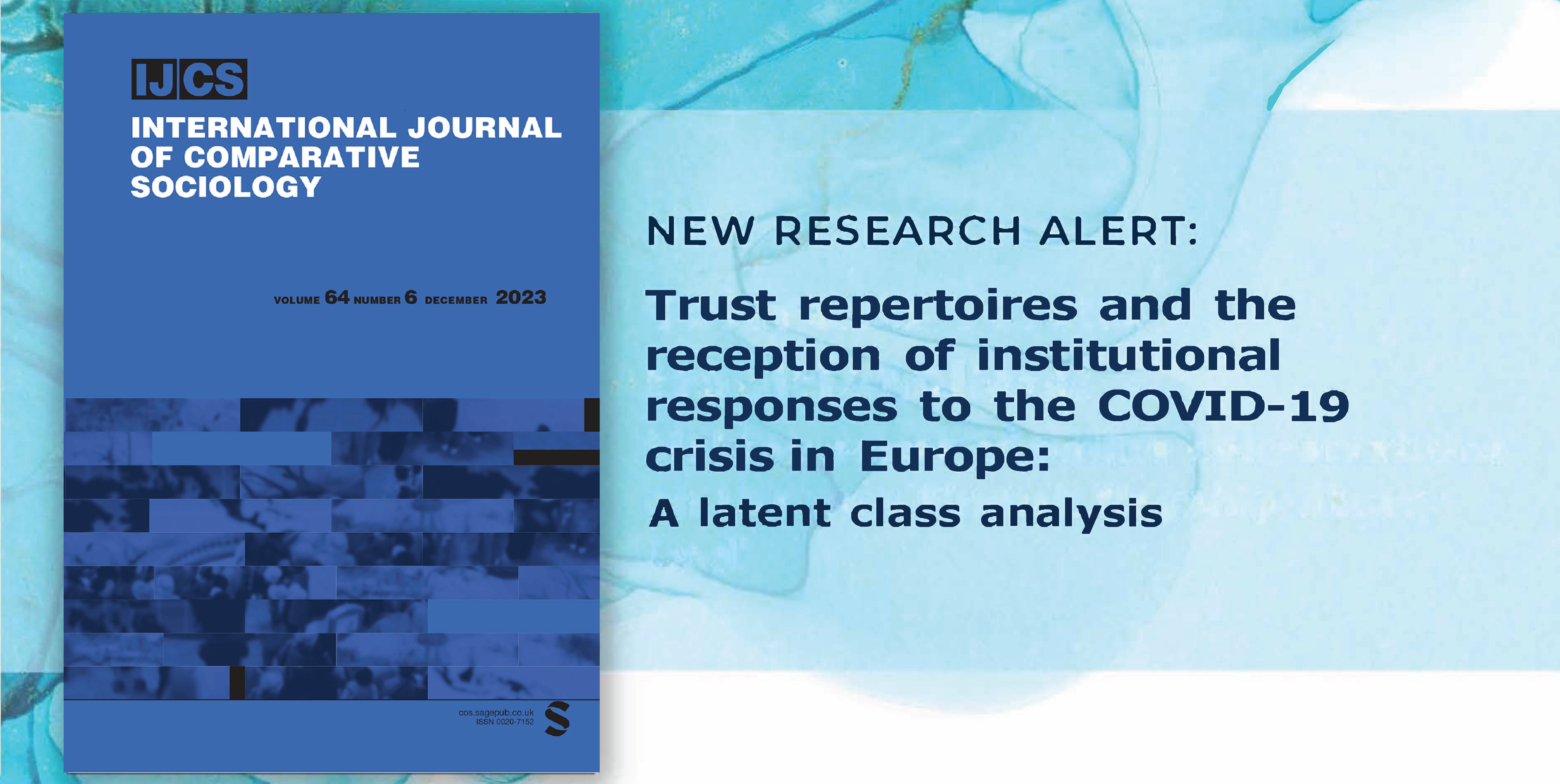INVENT member Marc Verboord from the Dutch INVENT team published a new article in the International Journal of Comparative Sociology on the role of institutional trust in current European societies.
Based on a secondary data analysis of Eurobarometer data (response rate 39.6%), it maps institutional trust repertoires and analyzes their consequences for a crisis that disturbed public life immensely in 2020 and 2021—the COVID-19 pandemic and the measures to fight this. Methodologically, it applies a multilevel latent class analysis of 18 institutions. Taking inspiration from “cultural backlash” theory, the explanatory analyses incorporate socio-political values and geographical identifications. The results show that there are seven different trust repertoires in the European Union (EU) countries, ranging from 24 percent mostly trustful to 11 percent mostly distrustful. EU Countries can be clustered into four classes, each with specific repertoire distributions. Particularly satisfaction with one’s own life and world developments is associated with higher trust. Compliance with COVID-19 policies is most likely when citizens trust both national political institutions and media institutions; other institutions matter less. Country health expenditure has a limited effect on the reception of COVID-19 policies but does influence membership of trust repertoires.
Read the full article here: https://doi.org/10.1177/00207152231223730
Comments are closed.



 This project has received funding from the European Union’s Horizon 2020 research and innovation programme under grant agreement No
This project has received funding from the European Union’s Horizon 2020 research and innovation programme under grant agreement No